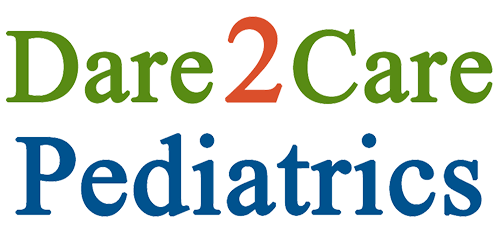Thyroid diseases are significant health concerns in pediatric patients, affecting growth, development, and overall well-being. Timely recognition, accurate diagnosis, and appropriate management are essential to optimize outcomes. Healthcare providers, families, and caregivers play a crucial role in ensuring that children with thyroid disorders receive the necessary medical care, support, and ongoing monitoring for their long-term health and quality of life.
Thyroid diseases are relatively common endocrine disorders that can affect children and adolescents. The thyroid gland plays a crucial role in regulating growth, development, and metabolism. This post aims to provide an overview of thyroid diseases in pediatric patients, including types of thyroid disorders, signs and symptoms, diagnostic approaches, and management strategies.
Types of Thyroid Disorders:
- Hypothyroidism: This occurs when the thyroid gland does not produce enough thyroid hormones. Congenital hypothyroidism, present at birth, is detected through newborn screening. Acquired hypothyroidism may develop later in childhood and can result from autoimmune conditions or thyroid gland dysfunction.
- Hyperthyroidism: Hyperthyroidism is characterized by an overactive thyroid gland that produces excessive amounts of thyroid hormones. Graves’ disease is the most common cause of hyperthyroidism in pediatric patients, but other causes include toxic nodular goiter and thyroiditis.
- Thyroid Nodules: Thyroid nodules are abnormal growths within the thyroid gland. While most nodules are benign, some can be cancerous. Evaluating thyroid nodules in children requires careful assessment and, in some cases, biopsy.
Signs and Symptoms: The signs and symptoms of thyroid disorders in children can vary depending on the type and severity of the condition. Common manifestations of thyroid disorders include:
- Hypothyroidism: Fatigue, poor growth, weight gain, constipation, dry skin, cold intolerance, delayed puberty, and intellectual impairment in severe cases.
- Hyperthyroidism: Weight loss, rapid heartbeat, irritability, heat intolerance, tremors, increased appetite, difficulty sleeping, and enlargement of the thyroid gland (goiter).
- Thyroid Nodules: Most nodules are asymptomatic, but larger nodules may cause swallowing difficulties, breathing problems, or visible neck swelling.
Diagnostic Approaches: Diagnosing thyroid disorders in pediatric patients involves a comprehensive evaluation, including:
- Medical History and Physical Examination: Healthcare providers assess the patient’s medical history, symptoms, growth patterns, and family history of thyroid disorders.
- Blood Tests: Thyroid function tests measure the levels of thyroid-stimulating hormone (TSH), free thyroxine (T4), and triiodothyronine (T3) in the blood. These tests help determine if the thyroid hormone levels are abnormal.
- Imaging: Ultrasound is commonly used to evaluate the thyroid gland, identify nodules, and assess their characteristics. In some cases, additional imaging modalities such as scintigraphy may be needed.
- Biopsy: If a thyroid nodule is suspicious, a fine-needle aspiration biopsy may be performed to determine if it is cancerous or benign.
Management Strategies: Treatment and management options for pediatric thyroid disorders depend on the specific diagnosis and the severity of the condition:
- Hormone Replacement Therapy: Children with hypothyroidism require lifelong hormone replacement therapy with synthetic thyroid hormones to restore normal hormone levels.
- Anti-thyroid Medications: Hyperthyroidism caused by Graves’ disease may be managed with anti-thyroid medications to suppress the production of excessive thyroid hormones.
- Radioactive Iodine Therapy: This treatment option may be considered for children with severe or persistent hyperthyroidism that does not respond to medication.
- Surgery: In cases of thyroid nodules or certain types of thyroid cancer, surgical removal of the affected thyroid tissue may be necessary.
Long-term Management and Monitoring: Children with thyroid disorders require regular follow-up care to monitor hormone levels, growth, and development. Medication dosages may need adjustment as children grow, and ongoing monitoring helps ensure optimal management and early detection of any potential complications.





